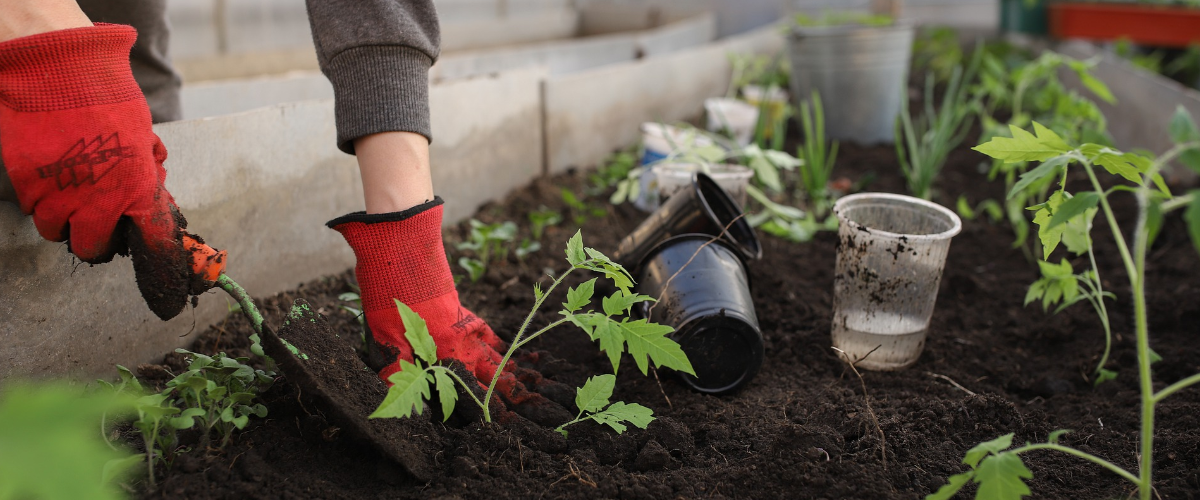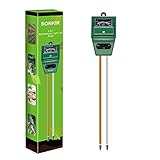When trying to grow plants, whether it’s crops, herbs, or just decorative houseplants, the conditions of the soil can make a world of difference toward how successful you are. Bad soil can mean little to no growth, or even plant death. So how do you make sure you have the right dirt? You test it!
But what’s the right way to test your soil? There are a few options, each with various degrees of reliability. We’ll break down the most common options and let you choose for yourself what to go with.
Collecting Soil to Test
But before you can start testing dirt, you need to get the dirt to test. No, it’s not as simple as scooping some up off the ground. There’s a specific process to follow to ensure accurate results.
- Dig 3 to 4 inches into the ground
- Scrape some dirt from the side of the hole you dug
- Repeat steps 1 and 2 in other similar locations that you plan to grow things in
- Do NOT touch the soil with your hands, use a trowel
- Spread the dirt out over a container, removing any stones, plant material, roots, and non-dirt material. Break it up as best you can
- Let dry
How much you collect will depend on the method in which you test the soil. Generally, aiming for about a pint of dirt should be enough. Now to the tests
Test 1: Home Test Kits
Most likely found in the garden section of home improvement stores or in garden centers, home test kits provide small containers and chemical packs used in performing tests, along with instructions on how to perform the tests. They provide tests for PH balance, Phosphorus levels, nitrogen levels, and potash levels.
- Quick, at home results for Soil pH, Nitrogen, Phosphrous and Potash
- Innovative and inexpensive soil test kit features an easy-to-use capsule system and patented color comparators
- Contains all components needed for 40 tests. 10 for each of pH, N, P and K
- Simple, detailed instructions included. Great for beginners and experienced gardeners alike.
- Soil pH preference list for over 450 plants included
Some folks will talk against using these, with claims that they don’t work. And that’s a common concern. There’s also the problem with “user error.” If left to you, there’s the chance you will mess up testing the soil correctly.
Otherwise, the tests are generally reliable and will at least give a good indication as to the state of your soil
Test 2: Soil Meters
This home testing product doesn’t use chemicals to indicate various soil information, but uses a metal rod. These devices are gauge screens with 2 to 4 metal rods coming out of the bottom. You insert the rods into the ground where you want to test and activate the sensors. What they actually test for will vary by model, but there are models that test multiple conditions, including moisture levels. Some even provide an option to test light levels, helpful for plants with specific lighting needs.
- Kindly NOTE: This soil tester can not be applied to test pH value of any other liquid. If the soil is too dry the indicator will not move, and water it before testing.
- 3 METERS IN ONE: Soil moisture level, Soil pH value and Sunlight level could be tested easily according to your need by switching the function button of this soil meter.
- NO BATTERY NEEDED: Simply insert the meter into soil, wait few minutes, accurate test results will be displayed on the readout panel. No battery is needed.
- STURDY AND SCIENTIFIC DESIGN: Reliable materials and upgraded technology used for this soil meter make it advanced and high-quality for long-term use.
- MULTIPURPOSE SOIL TEST KIT: Portable and compact design enables you to use this soil meter for house garden, farm, lawn and any other soil & plant analysis. Ideal for indoor and outdoor use.
At first glance, it may seem too easy to be legitimate. But according to many users, it does work. Some encounter some troubles, while others had simple solutions to those issues. But all in all, this method is generally well-received. While not as intensive as chemical tests, it does offer tests for aspects that the chemical ones won’t, like moisture and sun. It might not be bad to have one of these in addition to a chemical test.
Test 3: Send to a Lab
The “traditional” way to get your soil tested is to send it to a lab. There are kits available online that provide the bags, postage, and instructions on how to collect and send the dirt. You can also find various universities offering the service.
- KNOW BEFORE YOU GROW | Grow the healthiest, sustainable lawn and garden with the most accurate and easy to use professional soil test kit on the market
- FAST & ACCURATE | Unlike at-home pH meters and test strips, our mail-in professional lab analysis accurately measures 13 plant-available nutrient levels, including Nitrogen and pH. Results in 6-8 days
- FOR ANY GROWING SCENARIO | Tests any soil type and growing condition - lawn & turf, vegetable gardening, flowers, compost, trees, vines, ornamental landscape, house plants, soil-less media or hydroponics
- SAVE TIME & MONEY | Stop applying products you don’t need. Learn exactly what products and amounts you need to grow the healthiest plants possible
- CUSTOM RECOMMENDATIONS | What to apply, how much to apply, and when to apply it. Provides both organic and non-organic fertilizer recommendations to effectively amend your soil
This option is considered the most effective, giving you the most reliable results and offering the most information about your soil. The two main catches are that what they actually test for will vary by company or organization, and that it will take a lot longer to get your results. It will also be the most expensive option of the three.
Final Thoughts
There’s no clear winner or loser here. If you have a large property dedicated to growing crops and your livelihood is dedicated to it, then investing in a lab test is the smarter choice. But if you’re just a hobby gardener with a moderate garden or indoor plant selection, then a home test kit and soil meter should serve you perfectly fine.




